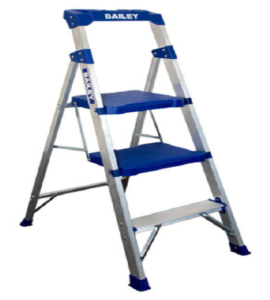 Posted On
Posted On
A Complete Guide for Self-Employed to Get a Credit Card Approval
 Posted On
Posted On
If you are a business owner, chances are high that you already know that it is not a cakewalk to find a Credit Card for self-employed individuals. While a Credit Card can play a significant role in meeting everyday business expenses with ease, ensuring free and easy credit on purchases for 20-50 days; fluctuations in monthly income is one of the key reasons why it is difficult to get a card approval for an owner of a Start-Up or a Small Business.
Besides, it is not always possible to provide the proof of income and business continuity for new businesses. Although all leading card issuers such as SBI Card offer different Types of SBI Credit Cards including the one for the self-employed. But you can expect a stricter regulation to apply for business owners.
Thus before you apply for a credit card as a self employed individual it is important to know about the all ins and outs of cards. Here is a quick checklist on what all you must know about credit cards in India.
- Joining fee
This is the one-time joining fee that is charged by the card issuer. The joining fee is different for each card and applicable only for certain cards. You might want to check this while you are researching the features of different cards.
- Annual fee
Some credit cards charge an annual fee just for the convenience of having a card. This fee is not applicable for all cards. It is mainly applicable for certain premium cards and secured cards.
The annual fee varies across the various credit cards that are available. However, most of the Credit Card companies, as a part of the promotion campaign, would have the annual fee waived off for the first year. Also, many cards offer additional customer benefits or rewards points against the annual fee.
- Card cancellation fee
Most banks do not charge any fee for the cancellation. However, ensure that you check the credit card’s APR thoroughly to ensure that nothing crops up in case you might want to cancel the credit card. However, the credit card companies don’t normally communicate these charges, so make sure you enquire for the same.
- Credit limit
The credit limit is basically the line of credit that has been allocated to you. It is up to this limit that you can swipe the credit card for cash. Most of the credit card companies don’t allow the card to be swiped over the limit allocated. Also, depending on your history of payment or upon request from you the Credit Card issuer company may increase the credit limit, allowing further transactions.
- Billing cycle
The billing cycle is the period for which the bill or the statement is generated. It is a 40 day period during which the transactions made on your credit card are noted and tracked for that matter.
- Bill payment methods
The various methods through which payments can be made are mainly NEFT, Bill Desk and alike.
- Late Fees
These are the fees incurred in case the payment of the minimum due amount or the statement balance is not made before the payment due date. This charge varies from bank to bank.Knowing about all these fees and charges would ensure that the cost of the card doesn’t come to you as a surprise later on. You can use your card more efficiently when you know about all the expenses involved. At the same time, you must know about all the value back offers and rewards on your card. Some of the most popular reward programs include:
- Welcome gifts: Flat discount on retail purchases, Free shopping coupons etc
- Reward points: Can be redeemed into gifts, cash back, discount coupons and vouchers
- Fuel surcharge waiver: Save while re
- Milestone value back offers: Value back offers on achieving quarterly or annual spends.
- Complimentary memberships such as Airport Lounge Access, travel benefits like preference on booking at premium hotels, tickets etc
- Add-on cards
- Repayment flexibility
Eligibility Criterion:
- Should be minimum18 years of age
- You must meet the minimum annual income criteria, which varies from card to card. For example, for HSBC Gold Card for a self-employed, you need to have an annual income of at least Rs. 500,000.
- A clean credit history without any default in your past repayments.
- Certain banks would ask you to hold a current account with them and it should be active for a minimum of 1 year.
- Valid address proof
- Identity proof
Below is the list of documents required for the Credit Card:
- Identity proof (Any one of the following)
Pan Card
Driving License
Voter ID Card
Passport
- Address Proof (Any one of the following)
Telephone bill (not more than 2 months old)
Electricity bill (not more than 2 months old)
Bank statement
Rent agreement
Voter ID card
Ration card
Passport
Driving License
- Income proof
- Latest IT Returns
- Proof of business continuity
Age Proof (Any one of the following)
Secondary School Certificate (class X)
Birth certificate
Passport
Voter ID card
Filling the Credit Card Application Online would be barely a 5-minute job. However, it is mandatory that you do your research properly before selecting the right card. Ensure that you check the eligibility criterion for each card since it varies from card to card. Once you meet the eligibility then you would be able to apply for that particular card. Additionally, also check the rewards program of the card. It is something that can be really fruitful for your business. Also, once the application process is complete, ensure that you have the relevant documents handy for faster processing of your request.








